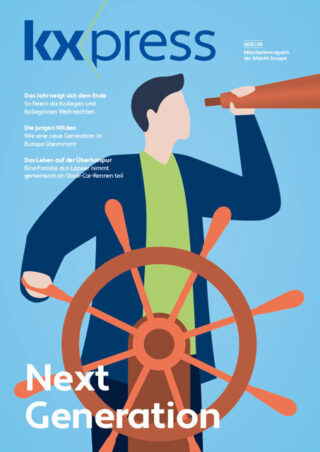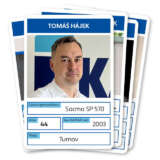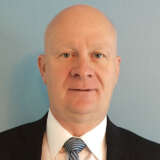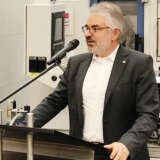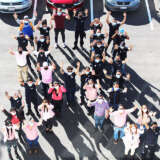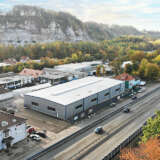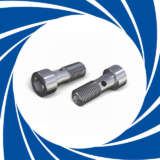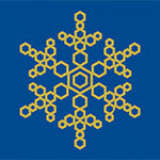The man who is loving a challenge - Welcome Mats Ceder as the new regional CEO in the Americas
A Swede who has lived in the U.S. longer than in Europe is now leading our Americas region. He is an extremely experienced manager with long-standing positions at major industrial companies such as Rexroth (a subsidiary of Bosch), Parker Hannifin, and the Dover Corporation. In recent years, he has brought his decades of expertise to companies focused on restoring sites or divisions to profitability. The task of managing a turnaround is exactly what he brings to the table. Not shying away from big missions - he accepted the challenges.
The father of two grown-up daughters gave us an interview on his third day within the company.
Hi Mats, good to have you. Tell us a little bit more about you, how did your career start?
When I grew up my dad ran Sweden's first nuclear power station. My brother and I both got an engineering degree in power generation. Unlike my brother, I never worked in that sector. He still does so today. My first job then was at Bosch Rexroth, a German industrial automation company.
I started as an application engineer in Sales. I worked with them in Sweden for about six years until they asked me if I wanted to move to the US to set up a key account management organization. I ended up staying there for another six years, before getting a phone call from a competitor: Parker Hannifin, which is an automation company. At the time I joined, the company was in transition to lean manufacturing - with continuous improvement – and more strategic pricing. This was great for gaining more experience in modern production. After some General Managers left Parker, one of them asked me to come along with him to Dover Corporation. This was a huge opportunity, so I agreed and ran different divisions for Dover.
My last station was with Norgren Automation Solutions. It's also in automotive supplier, targeting the same customers as KAMAX. I was responsible for the automation of press lines in the manufactory.
What is your driver in business life?
I like to always learn something new and don't shy away from a challenge! I think I'm very good at managing something, that's not in the best condition. For me, such situations bear a lot of opportunities to make a difference. It's satisfying to hustle with the team to make it work again, right? And in the end, you are happy with the result … I shouldn't say satisfied because it's now continuous improvement that never ends, right? We could always continue making things better.
When the business is running properly, then the focus is on the customer side to grow the market share, and there are different opportunities there. Or you try to open up other industries. There are plenty of possibilities and challenges – this is what keeps me motivated. It keeps me engaged.
What is your goal here at KAMAX?
Oh, my goal is to become a part of the team that resolves all the issues we have in the US. And establish a sustainable culture where we build on the improvements we have made and only change what really can be improved – as manifested in the mindset of continuous improvement. And of course, I want us to grow our revenue. Getting on more platforms and to our customers. Obviously, we are not the only ones that have problems at the moment.
So how would you describe your leadership?
I would say I'm very involved, but I'm not a micro-manager. I am very customer focused, both external and internal. My job is to make sure that our people have the tools, knowledge, skills, and time to do their job properly. But I want to understand exactly what the issues are and where they come from. I'd like to understand what the teams are working on. I like to understand the long-term targets and the short-term targets, and I like to check in and know if we are on track. If not, I want to support you to make sure we get back on track. So I would say especially in the beginning I got to be hands-on in everything.
What would former colleagues say about you?
If you were to ask my former colleagues, they would say accountability. Plus, punctuality and accuracy are important to me. When a meeting starts at 10:00 am, I expect everybody to call in and be there 5 minutes ahead. The punctuality part is a tie over from my time in the army, to be at the right place, at the right time with the right equipment. If you were not, you could not leave the base for the weekend. Only took me one instance to learn that!
I got a lot of phone calls and text messages when I left my previous company, from people thanking me for helping them do their job well, but also getting recognition for it. And recognition could mean a lot, it’s not just promotions and rising salaries, but it could also be something as simple as a gift card or a team event.
I want everybody to feel part of the team, because without a strong team we cannot succeed.
So what will your first 100 days look like?
In the first hundred days, there is a lot of information gathering: What is everybody doing? What are our pain points? I also want to meet with all the key stakeholders in the company and understand their roles to get to know the team better. I will work with the leadership team and their direct reports to make sure that we have the right players. I also want to meet with customers and start with the ones that are currently not happy with us.
My first main task is also to reduce expedites dramatically, because they cost us a significant amount of money and it jeopardizes our relationship with our customers.


Not only on the road: Mats Ceder crosses a river on his motorcycle
What are you doing in your free time?
I do a lot of different things. Nowadays it's mostly off-road motorcycling. As may be typical for Swedes, I also like downhill skiing. And I'm a commercial airplane and helicopter pilot.
You told us, you worked for a German-based company before. You also do speak a little German, a birdie told us …
When I lived in Sweden I learned German in school. At Rexroth, I had countless meetings in that language. So I partly can follow conversations - also because the grammar and some words are quite similar to Swedish - but I can't speak it. In writing, I can probably pick it up what it is, but it's a 50/50 chance I get the full meaning.
So let’s come to our obvious last question: What's your favorite German dish?
My favorite thing is to go to a German brewery and eat Putenschnitzel with spaetzle.
KXpress
